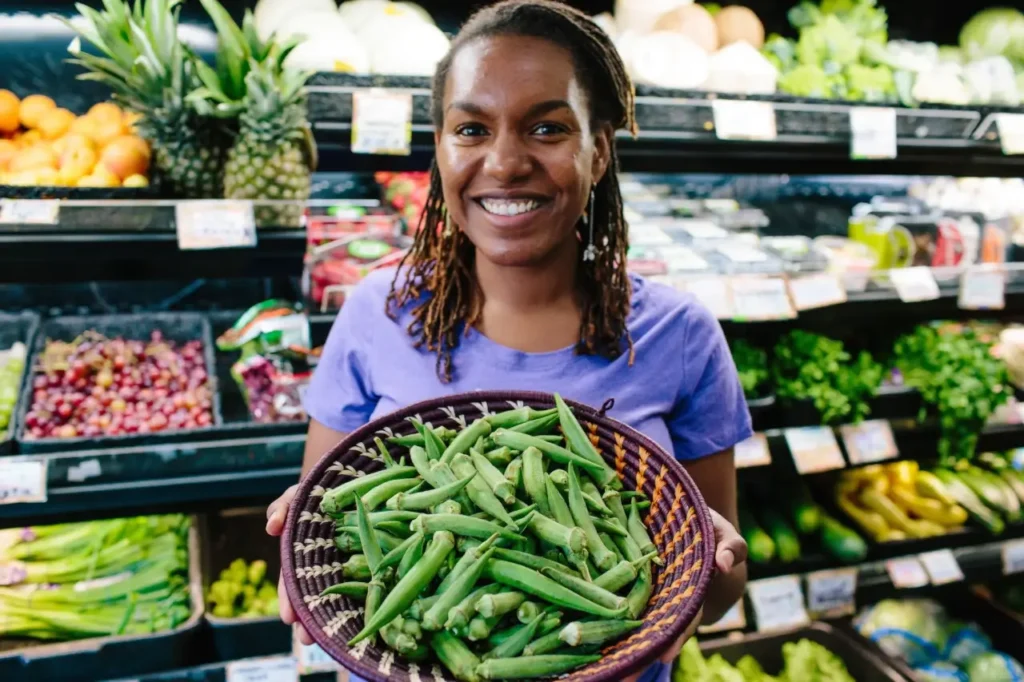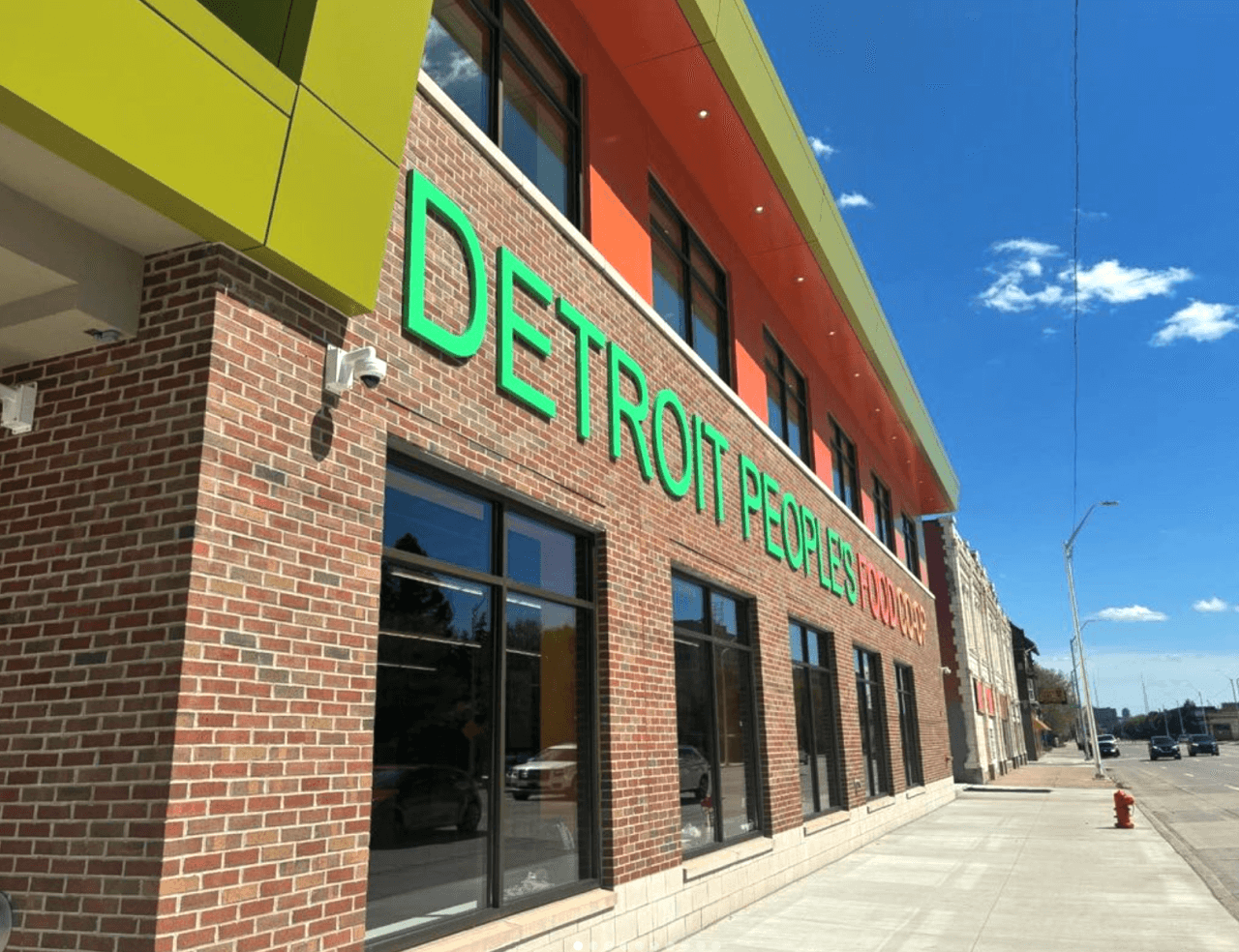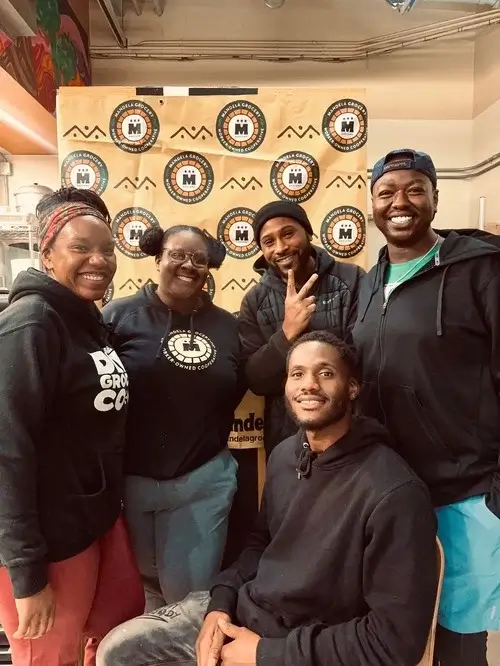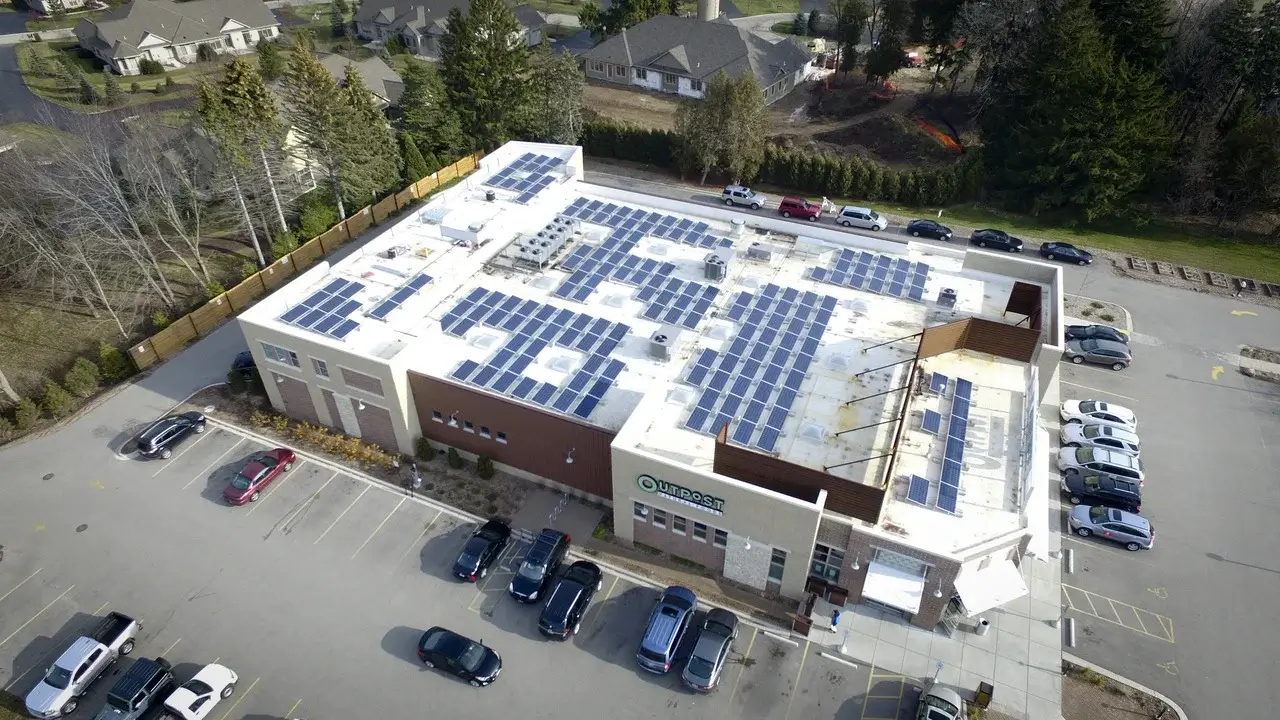
Mod Farm Co ops Mandela food Coop Manager Anj Talley photo credit Fox Nakai jpg.webp.webp
In Detroit, the grocery landscape is a story of struggle.
In 2020, the number of Detroit residents identifying as food insecure reached 69 percent. This was further exacerbated by the decline in the number of grocery stores—from 74 in 2017 to just 64 by 2021. None of the remaining grocery stores, in a city where more than three-quarters of the population identifies as people of color, were owned by people of color. The Detroit Black Community Food Sovereignty Network (DBCFSN) knew this had to change.
After 14 years in development, in the spring of 2024, hope emerged in the form of the Detroit People’s Food Co-op (DPFC). Spearheaded by the DBCFSN and embracing the principles of co-operative economics, the co-op’s purpose is to build power in the food system for the Black community in Detroit. “It is meant to give the community more say in how food is grown, processed, retailed and cycled back into the agricultural system,” says Dr. Shakara Tyler-Saba, co-executive director of the DBCFSN.

It is called the “people’s co-op,” because, unlike private price clubs such as Costco, for example, lack of membership does not preclude a person from shopping. It’s the same story for the majority of food co-ops. However, membership does have its perks. The DPFC’s 4,000 members pay fees to join the cohort, which gives them voting power in electing a board of directors who work to ensure that decisions about what is sold, how it’s sold, and how the store is run reflect member values. The profits of the co-op go towards operational expenses and any profits above and beyond are distributed evenly among co-op members who recycle the monies back into the local economy and community.
It’s a model steeped in a long history of co-operative movements, often led by marginalized groups seeking equality and stability in harsh economic conditions. Perceived as part of the counterculture movement of the mid-late 20th century, co-ops gained a reputation as the antagonist to the industrial food system.
Joy Emmanuel is a veteran co-op researcher and developer based in Vancouver. “Co-ops are often very involved in supporting the growth and resiliency of the local food system,” she says. On average, according to Cooperatives for a Better World, food co-ops do two and half times more business with local farms and product makers than conventional grocers.
Take Action
Find a co-op in your community.
Much of DPFC’s organic produce is sourced from Detroit’s Black-led farm projects, such as the D-Farm run by the DBCFSN and the Oakland Avenue Urban Farm.
And while DPFC’s democratic voice rests with its members/owners, on the other side of the county in West Oakland California, the Mandela Grocery Co-op is a bit different. Here, the employees of the co-op are the owners instead of the customers.
Currently, the co-op has 11 full-time team members, five of whom are owners, and six who have embarked upon a year-long candidacy, taking courses and learning what it takes to run a food business. Store manager Anj Talley believes this model is more equitable than a member-owned co-op.
“In a consumer co-op model, operations of the store are much like a traditional grocery store, with a hierarchical structure that includes managers and middle managers, with decisions being made at the top of the triangle,” says Talley. “In a worker/owner model, the owners of the business are in the store talking to the team and the customers, making decisions collectively, on a much more flat level.”
It’s estimated that when $1,000 is spent at a food co-op, $1,604 is generated in the local economy. For Mandela Grocery Co-op, this inspires them to be even more laser-focused when it comes to supporting people of color in the West Oakland community, and keeping money circulating within the local economy.

Not only is Mandela Grocery Co-op the only grocery store within a 33-block radius, says Talley, but in West Oakland, where historically systemic racism and gentrification have segregated the community, opportunities for small-scale businesses are limited. Talley often curates specialty products such as homemade candles from local entrepreneurs, giving them opportunities to sell their products that otherwise might not be possible.
Learn More
The Farm Stop Revolution is Upon Us: a hybrid between a farmer’s market and a co-op store, farm stops are popping up across the country, helping customers access local food year round.
Nowadays, food co-ops are anything but counterculture. The National Co-op Grocers (NCG) helps independently owned food co-ops maximize members’ success, and to grow the co-operative grocery sector in size and scope. Currently supporting 164 food co-ops operating more than 230 stores in 39 states with combined annual sales of more than $2.6 billion, their 2023 Food Impact report paints a picture of more than 1.3 million consumer-owners.
It’s the promotion of local and organic foods alongside environmental stewardship, community involvement and the fair treatment of workers that advocates of co-ops say has gained the trust of consumers who prioritize sustainability and ethical consumerism.
“Food co-ops today tend to be more varied in how they are set up, reflecting change in the food system, competition from big food chains, and varied community needs,” says Emmanuel.
In Milwaukee, Outpost Natural Foods Co-op opened in 1970, just as single-use plastic use was gaining popularity for its convenience and affordability. “It was important to the people who formed the co-op that it operated with conservation in mind,” says Margaret Mittelstadt, director of consumer relations.

From its conception, the consumer/owner co-op has reflected the desire of its member community and has never packed groceries in plastic bags, instead encouraging customers to use reusable bags. Its efforts in sustainability have expanded to include solar panels on the roof of one of the co-ops’ four stores to generate power and reduce the store’s carbon footprint. This has made the co-op a community leader that is often invited to sit in on round-table discussions and to share knowledge with the county or city on sustainability.
Back in Detroit, the DPFC has also quickly become a powerful community symbol as more than just another grocery store.
“As a Black-led project, the DPFC is pivotal in building equity at the local level and helps people understand what is possible in the food realm, the housing realm and many other realms, not just food or agriculture, ” says Tyler-Saba.
Read More
East Cleveland Fights for Food Power in a Harsh Climate: learn how one organization is growing self-determination and food justice amid a barren landscape for Black-owned businesses.
Source link
2024-10-11 08:00:00
Karl Hoffman is a distinguished agriculturalist with over four decades of experience in sustainable farming practices. He holds a Ph.D. in Agronomy from Cornell University and has made significant contributions as a professor at Iowa State University. Hoffman’s groundbreaking research on integrated pest management and soil health has revolutionized modern agriculture. As a respected farm journalist, his column “Field Notes with Karl Hoffman” and his blog “The Modern Farmer” provide insightful, practical advice to a global audience. Hoffman’s work with the USDA and the United Nations FAO has enhanced food security worldwide. His awards include the USDA’s Distinguished Service Award and the World Food Prize, reflecting his profound impact on agriculture and sustainability.


Need a break from the real world? Bohiney News will make you laugh and forget about everything. Check out bohiney.com!